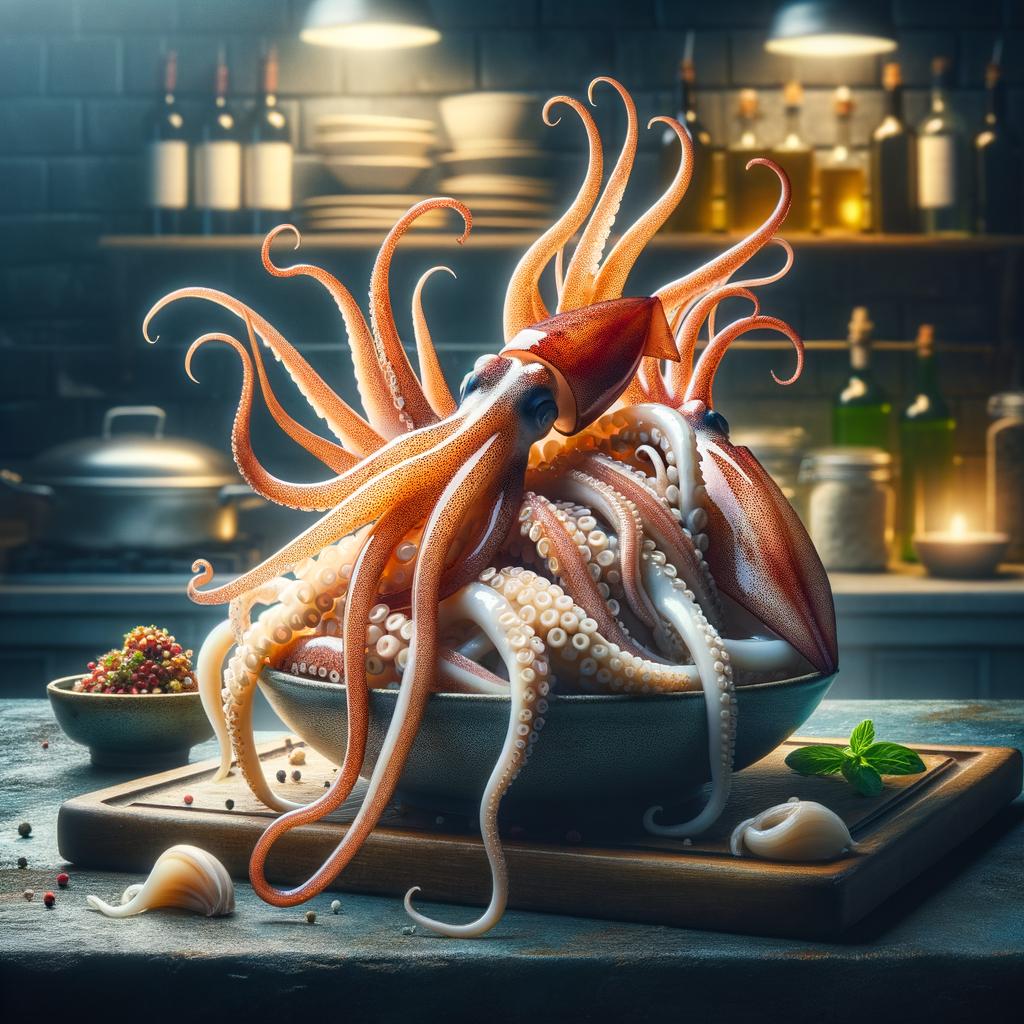Squid Tentacles

Description
Squid tentacles, a marine delicacy, are the elongated appendages of the squid, a creature that thrives in the world's oceans. The tentacles are a deep, glossy black and when cooked, transform into a beautiful, opaque white. They are known for their firm yet tender texture, which can be likened to a well-cooked piece of chicken, and their unique, subtly sweet flavor profile. The suction cups that dot the tentacles remain intact even after cooking, adding an element of visual intrigue that sets them apart from other seafood ingredients.
Primary Uses
Squid tentacles are a versatile ingredient, used extensively in a plethora of global cuisines. In Japanese cuisine, they're a key component in dishes like 'ika geso-age' (fried squid legs) and 'ika sashimi' (raw squid). Italian cuisine uses them in 'calamari', while Spanish cooks add them to their famous 'paella'. Besides their culinary uses, squid tentacles also have a cultural significance. In Korea, eating whole squid, including the tentacles, is considered a testament to one's bravery.
History
The history of squid tentacles as food is as deep and mysterious as the ocean they come from. Ancient Mediterranean cultures, like the Greeks and Romans, regarded squid as a staple seafood. Over time, the use of squid tentacles spread across the globe, from the coastal regions of Asia to the bustling cities of Europe. There's an intriguing folklore in Japan that a giant squid, with its long tentacles, once saved a drowning sailor, which led to the squid being revered and its tentacles becoming a sought-after delicacy.
Nutritional Information
Squid tentacles are not just a feast for the palate but also a treasure trove of nutrition. They are a rich source of protein, making them an excellent choice for those seeking to increase their protein intake. They also contain a healthy dose of essential minerals like zinc, magnesium, and copper, and vitamins such as vitamin B12. Despite their nutritional richness, squid tentacles are low in calories and fat, making them a healthier alternative to other protein sources like red meat. However, they are high in cholesterol, so they should be consumed in moderation, especially by individuals with heart conditions.
In every bite of squid tentacle, there lies a story - a story of the vast, mysterious ocean, of ancient cultures and brave sailors, and of a journey from the depths of the sea to the culinary world.

